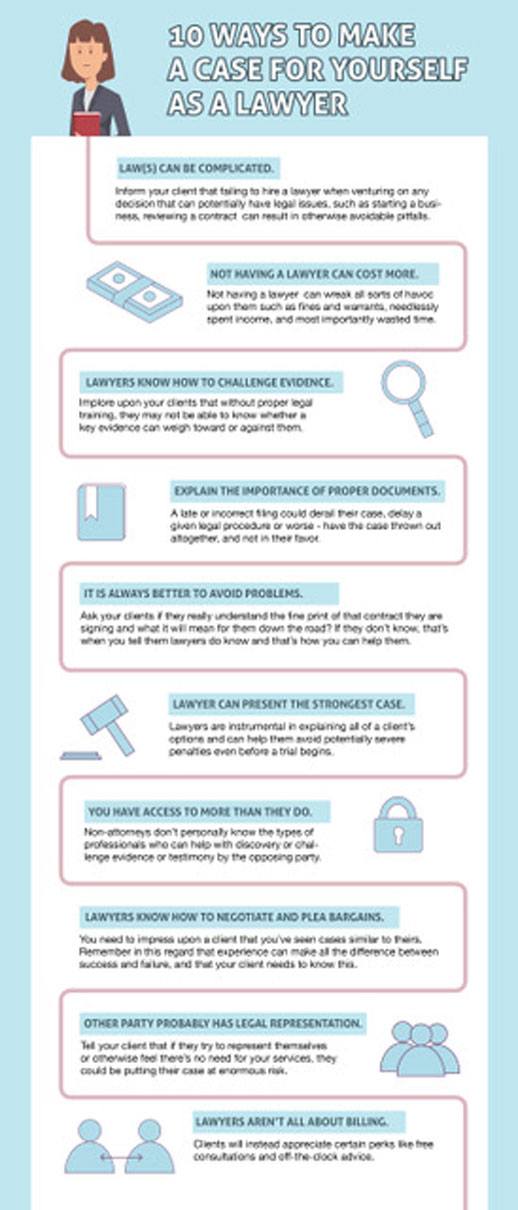
- Sometimes you have to ask yourself why your qualities make you a good fit for your career.
- In the case of law, there are 10 distinct characteristics that a lawyer should have that can deem them suitable to help people by practicing law.
- Keep reading to see if you have the following 10 traits that can make you invaluable to your current and future clientele.
The practice of law can make for a fascinating career.
As a lawyer, new and potentially interesting cases cross your desk on (let’s hope) a daily basis, which to that end, enables you to increase your knowledge base toward legal issues you may not have considered before.
In short, as a lawyer you never stop learning. Of course, related to your learning is the fact that you are simultaneously helping someone with their legal issues.
This should be a win-win in anyone’s book, particularly other lawyers.
But be that as it may, you also need to have certain legal-type characteristics to even open a dialogue with a potential client. Therefore, the question is what are those characteristics attorneys need to possess that can appreciate their value to both clients and the legal profession as a whole?
In this article, which is inspired by a piece published on FindLaw.com, we discover a list of traits – both personal and business related that can make you a standout attorney that new and existing clients will run to each time they have a legal issue that needs attention.
Of course not every legal matter requires an attorney, which is something you as a lawyer of integrity and principle need to be straightforward about with your clients.
Fighting a speeding ticket and going to small claims courts, for instance, are two examples.
However, with clients in other situations that involve a legal dispute, challenge, or deal, your job is to guide them through these issues to hopefully reach a positive outcome.
This is where your advice and expertise has importance to others, and while there is a price to pay for your services, you need to build and maintain a bridge of trust between you and your clients.
Keep in mind, of course, that while each person's legal situation is different, it is incumbent upon you to explain your value to your clients, and why it is in their best interest to have your representation, as the following 10 ways to make a case for yourself as a lawyer will show.
1. Law(s) can be complicated.
Make certain you relay to your clients the complexity of law – and not in a pandering way in which you lump your explanation in with your hourly billing rate – but in a factual manner that your clients can appreciate.
In short, you need to explain to your new and existing clients your value to their lives.
As the FindLaw.com article explains, a solid case can quickly unravel without the help of a trained and emotionally detached attorney.
Inform your client that failing to hire a lawyer when venturing on any decision that can potentially have legal issues, such as starting a business, reviewing a contract, or embarking on other endeavors with legal ramifications can result in otherwise avoidable pitfalls.
2. Not having a lawyer can cost the client more.
Your client needs to know that there is value in your representation through your guidance. And not having it can wreak all sorts of havoc upon them such as fines and warrants, lost income, needlessly spent income, and most importantly wasted time.
If your client is involved in a civil case, they should also know that there is the potential they might be able to claim legal fees as a plaintiff, which in the end could save or make them money.
3. Explain to your clients that lawyers know how to challenge evidence.
Implore upon your clients that without proper legal training, they may not be able to know whether a key piece of evidence can weigh toward or against them. This is especially important in non-civil or criminal cases.
4. Explain to them the importance of proper legal documentation.
Your clients need to know that filing the wrong document or following the wrong procedure could ruin their case.
Because your clients aren’t attorneys, they may struggle with the deadlines and protocol for properly filling out and filing certain legal documents.
5. You have access to more than they do.
Does your client’s case entail the need for a certain witness or an expert in a particular field or other interest? If there is a need for this type of person, you should explain to your client that they can be difficult to find, and that not having this kind of person – or the wrong type of person can drastically alter the outcome of their case.
Attorneys depend on an extended network of professionals to help their clients ' cases. Most non-attorneys don't personally know the types of professionals who can help with discovery or challenge evidence or testimony by the opposing party.
6. A lawyer can present a client’s strongest case.
Your client needs to know that admitting fault or in a criminal case, pleading guilty isn't the only choice, even if there's evidence and circumstances that can be used against them.
Lawyers are instrumental in explaining all of a client’s options and can help them avoid potentially severe penalties even before a trial begins.
7. It is always better to avoid problems rather than fix them later.
Your clients will appreciate the fact that hiring you as their lawyer can in many instances help them avoid future potential legal headaches.
If they are still doubtful of your abilities to help them avoid future legal issues, ask your clients if they really understand the fine print of that contract they are signing and what it will mean for them down the road? If they don’t know, that’s when you tell them lawyers do know and that’s how you can help them.
8. Lawyers know how to negotiate settlements and plea bargains.
As an experienced lawyer, you need to impress upon a client that you’ve seen cases similar to theirs, which you more than likely have. With that, you have experience as to how your client can best get through their legal issues.
Remember in this regard that experience can make all the difference between success and failure, and that your client needs to know this.
9. The other party probably has legal representation.
If the party opposed to your client has legal representation, you should explain to your client that there is no reason for them not to have your legal representation for their own interests.
It can be immeasurably difficult for a person without a legal background to go up against an attorney who has countless cases worth of experience. Basically tell your client that if they try to represent themselves or otherwise feel there’s no need for your services, they could be putting their case at enormous risk.
10. Lawyers aren’t all about billing; in fact, they usually provide free consultation.
Don’t be that type of lawyer who checks off a billable hour for five minutes of consultation with a new or existing client.
The lawyers clients are most comfortable with are those who do not charge astronomical fees for 30 minutes of work here or 15 minutes of work there. Clients will instead appreciate certain perks like free consultations and off-the-clock advice when you are not charging them billable time.
Conclusion
The lawyer stereotype is quite pervasive throughout the legal community and beyond. Many believe lawyers are crooks, overcharge clients and are out for their own self-interests, which for some attorneys is completely true.
Fortunately, a majority of attorneys are not that way, and can instead be completely trusted.
It’s up to you to impress that upon your client. Instead of them doubting your abilities to help them, they should celebrate your assistance because you will help them. As an attorney, you simply have to explain to them when, why and how and make a formidable argument as to why they should trust you.
Come up with a strong comprehensive case for yourself as a lawyer to assure your clients you are the best person and there will be little to no reason why they should not believe and finally trust you.




